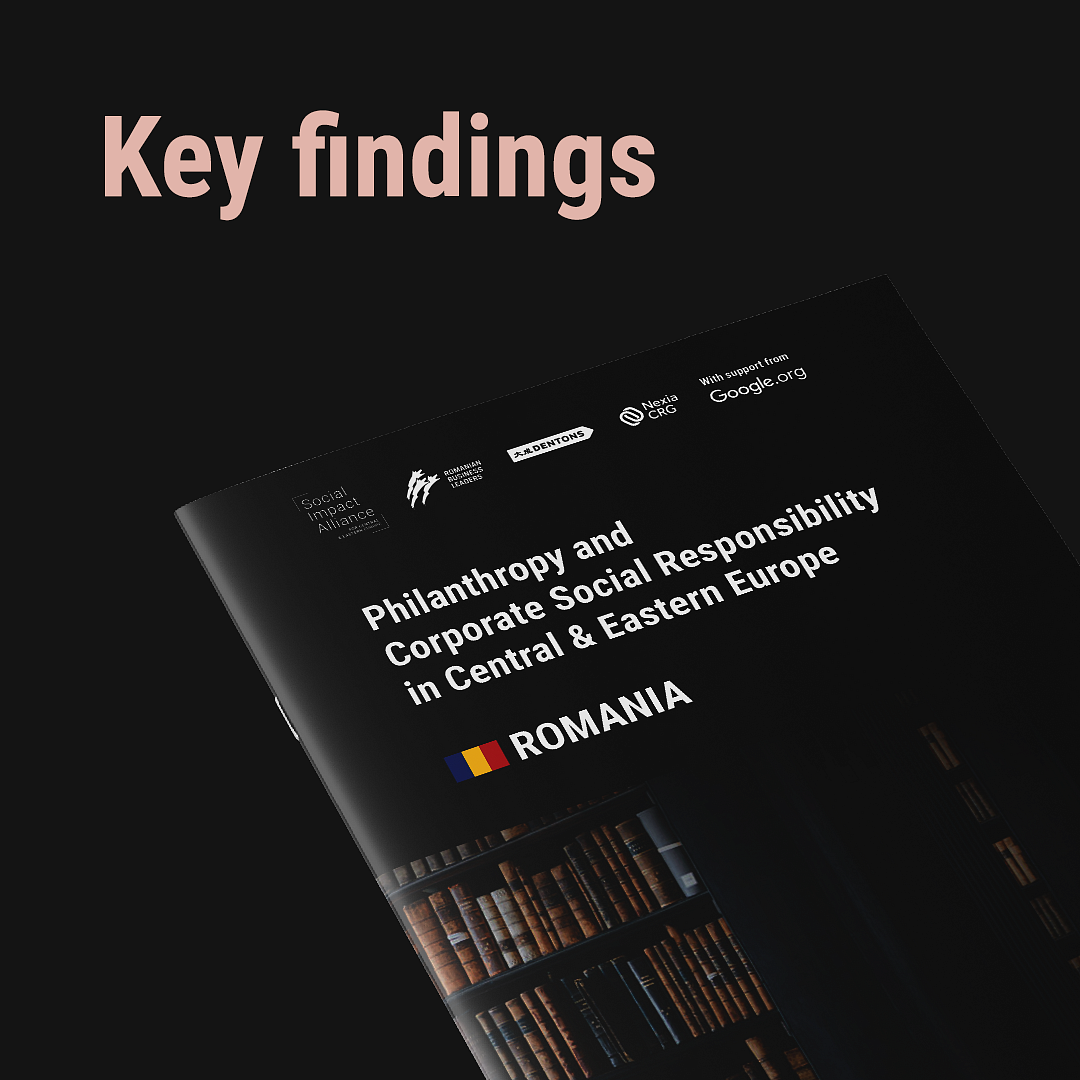Romania has enormous untapped philanthropic potential, study shows



Romania, one of the largest countries in the CEE region, has enormous philanthropic potential, according to research conducted by Social Impact Alliance for Central & Eastern Europe and partners. The study shows that Romanians citizens could donate almost twice as much as they currently do. However, various soft, tax, and legal barriers continue to hinder the development of social engagement.
The challenges that have impacted the CEE region over the past two years, such as the pandemic or the war in Ukraine, have emphasized the crucial role of philanthropy in building a strong civil society.
Nearly 6 out of 10 CEE citizens believe the current challenges require more community engagement. And Romania is no exception. Data compiled by the Social Impact Alliance for Central & Eastern Europe shows that as many as 55% of Romanians are already willing to pay more for products and services offered by socially responsible brands. Likewise, companies are increasingly adopting responsible and sustainable practices, motivated by the growing awareness among employees, investors, and consumers.
Roughly 1 in 2 Romanians currently make financial donations to social causes, with the current annual contribution amounting to EUR 595 mln (EUR 87 per donor). 41% of Romanians donate products such as medicines and food. Additionally, 37% of Romanians have been involved in volunteering in the last 12 months.
However, the philanthropic potential of the Romanian society is much higher, according to the study in question. With proper motivation and removal of barriers, citizens could donate up to EUR 1.22 bln for social causes per year, more than twice as much as they donate now.
Increasing such donations is at the core of the latest study “Philanthropy and Corporate Social Responsibility in CEE | Romania” conducted in March and April 2023 by Social Impact Alliance for Central & Eastern Europe together with Romanian Business Leaders Foundation, Dentons Romania, Nexia Romania with support from Google.org. The report identifies the most important barriers and potential incentives for corporate and individual donors and recommended changes.
“Businesses and individuals are increasingly willing to involve their resources – money, time, and skills – to address the most pressing social and environmental challenges. Making it easier for them is in the interest of all of us,” said Anna Korzeniewska, founder of the Social Impact Alliance for Central & Eastern Europe.
While Romanian companies are increasingly willing to engage in socially responsible activities, they often only act to the extent required by regulatory compliance, without focusing on delivering long-term, impactful solutions instead of moving from one project to another.
Romania has a tax redistribution model (often referred to as the „sponsorship law” in the context of companies) that is unique in the CEE region. Companies can assign up to 20% of their taxes to social causes, while individuals can assign up to 3.5%. The current form of tax redistribution is effective and enables the financing of numerous initiatives.
Supplementing this mechanism with additional tax benefits would encourage both private and corporate donors to support nonprofit organizations and public administration in tackling the most pressing social and environmental challenges. One possible solution is to introduce tax breaks for corporate donors.
There is also a shortage of incentives for non-monetary forms of engagement, especially for skills-based volunteering and pro bono services. An additional hurdle that discourages businesses from these forms of engagement is that pro bono activity can trigger VAT obligations.
(Photo source: PR)